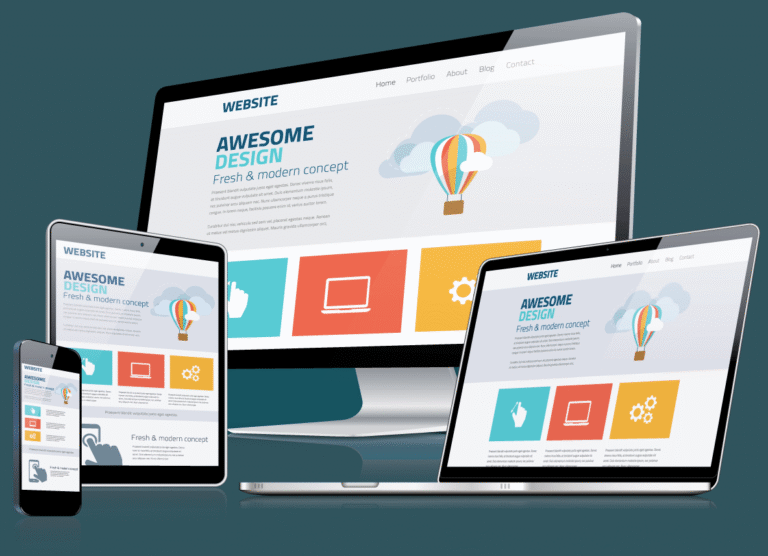In-House vs. Outsourced Marketing: Cost-Benefit for UK SMBs
UK small and medium-sized businesses (SMBs) have a big choice to make. They can manage their marketing themselves or hire experts. Recent studies show that nearly 60% of UK SMBs find it hard to pick the best marketing strategy. This is often because they don’t have enough money or the right skills.
I’m a digital marketing expert, and I know how important it is to make the right choice. Deciding between doing marketing yourself or hiring experts can really affect your business. The main thing is to understand the costs and benefits of each option. You need to think about things like finding the right people, using your resources well, and how to run your campaigns.
Key Takeaways
- Understanding the pros and cons of in-house marketing for UK SMBs.
- Exploring the benefits and challenges of outsourcing marketing efforts.
- Conducting a thorough cost-benefit analysis to inform your decision.
- Considering your business needs and budget constraints.
- Evaluating the impact on your brand’s visibility and bottom line.
The Marketing Dilemma for UK Small and Medium Businesses
UK small and medium businesses (SMBs) face a tough marketing world. With over 5 million businesses in the UK, grabbing customer attention is hard.
Current Marketing Landscape in the UK
The UK’s digital marketing solutions are changing fast. New tech and platforms keep popping up. This brings both chances and hurdles for SMBs, who must find their way to reach their audience.
So, marketing strategies need to be well thought out to cut through the noise. SMBs must be quick to adapt to new trends and what customers want.
Why This Decision Matters for SMBs
The choice between doing marketing themselves or getting outside help is key for UK SMBs. It affects their ability to compete, manage their marketing budget, and grow their business.
Choosing the best marketing approach can really help meet business goals. SMBs need to think about their unique needs, what they can do, and what they want to achieve when picking between in-house and outsourced marketing.
Understanding In-House Marketing Teams
For UK SMBs, knowing about in-house marketing teams is key. It helps them decide how to spend their marketing budget. Building such a team needs a big investment in finding and training the right people.
Structure and Composition
The way an in-house marketing team is set up is very important. A good team has different roles to handle all marketing tasks well.
Core Roles and Responsibilities
Key roles include a marketing manager, content creators, SEO specialists, and social media managers. Each one does something different. The marketing manager plans the strategy, content creators make engaging content, SEO specialists make it search engine friendly, and social media managers manage the brand’s online presence.
Team Size Considerations
The size of the marketing team depends on what the SMB needs and can afford. Smaller teams might have people doing more than one job. Bigger teams can have more specialized roles. “It’s about finding the right balance between enough talent and not too many people,” a marketing expert advises.
Required Skills and Expertise
A good in-house marketing team needs a variety of skills. They should be good at creating content, analyzing data, SEO, and social media. They also need to be able to learn new things as marketing changes.
Philip Kotler, a famous marketing expert, once said, “Marketing is not just finding smart ways to sell what you make. It’s about creating real value for customers.” A team that gets this can bring a lot of value to UK SMBs.
The Outsourced Marketing Ecosystem
Outsourced marketing in the UK has a lively ecosystem of agencies. These agencies cater to different marketing needs. This means UK SMBs can pick the right agency for them, whether it’s a full-service agency or a specialist one.
Types of Marketing Agencies in the UK
The UK has many marketing agencies, each with its own strengths. It’s important for SMBs to know these differences to make good choices.
Full-Service vs. Specialist Agencies
Full-service agencies do everything from planning to doing the work. Specialist agencies focus on specific areas like SEO or social media. For example, a full-service agency might be best for a big marketing change. A specialist agency could be better for improving a certain marketing part.
Boutique vs. Network Agencies
Boutique agencies are small and offer personal service. Network agencies are bigger and have more resources. The choice depends on what the SMB needs and can afford.
Service Models and Specialisations
UK marketing agencies use different service models. These include project-based, retainer-based, and performance-based. They specialise in things like digital marketing, content creation, and data analytics.
| Agency Type | Service Model | Specialisation |
|---|---|---|
| Full-Service | Retainer-Based | Digital Marketing |
| Specialist | Project-Based | SEO |
| Boutique | Performance-Based | Content Creation |
As outsourced marketing changes, UK SMBs need to keep up. They should know about new trends and agency options to use their marketing budgets wisely.
Direct Cost Comparison: In-House vs. Outsourced
UK SMBs need to understand the costs of in-house marketing versus outsourcing. It’s key to look at different expenses that affect your marketing budget.
Salary and Benefits Expenses
In-house marketing teams have big costs for salaries and benefits. You must think about the costs of hiring a team with the right skills. This includes salaries, National Insurance, and pension contributions.
The average salary for a marketing manager in the UK is £35,000-£50,000 a year. You also need to add in extra benefits and training costs.
Agency Retainers and Project Fees
Outsourced marketing has agency retainers and project fees. These costs change based on the work and the agency’s skills. Agencies might charge a monthly fee from £1,000 to £10,000 or more.
Project fees can also be high, depending on the skills needed and resources used.
Hidden Costs to Consider
There are hidden costs in both in-house and outsourced marketing.
Training and Development Costs
In-house teams need ongoing training to stay current. This includes costs for workshops, online courses, and conferences. Investing in your team’s growth can improve productivity and results.
Technology and Tool Investments
Both in-house and outsourced marketing need tech and tool investments. In-house teams might spend on marketing automation, SEO tools, and analytics. Outsourced teams might need project management tools for working with agencies.
In conclusion, UK SMBs should do a detailed cost analysis for in-house or outsourced marketing. By looking at all costs, you can better use your marketing budget and meet your business goals.
In-House vs. Outsourced Marketing: A Cost-Benefit Analysis for UK SMBs
UK SMBs need to carefully weigh the costs and benefits of in-house and outsourced marketing. This involves looking at both numbers and the quality of the work. It’s all about making a smart choice.
Quantitative Analysis Framework
For a detailed look at the numbers, UK SMBs should focus on:
- Return on Investment (ROI)
- Cost-Per-Acquisition (CPA)
- Customer Lifetime Value (CLV)
ROI Measurement Methods
Tracking ROI means looking at how much money marketing brings in and what it costs. To do this well, you need:
- Clear ways to see who’s responsible for sales
- Accurate data
- Regular checks on how things are going
Cost-Per-Acquisition Comparisons
Looking at CPA between in-house and outsourced marketing can be very helpful. You should think about:
- What it costs to hire an agency versus keeping staff
- How good you are at buying media
- How well you can improve your campaigns
Qualitative Considerations
But there’s more to it than just numbers. UK SMBs also need to think about:
- Keeping control of your brand
- The level of marketing expertise
- How easy it is to grow or change your marketing
By looking at both the numbers and the quality, UK SMBs can make a choice that fits their business and marketing plans.
Benefits of Building an In-House Marketing Team
UK SMBs are seeing the value of in-house marketing teams. They bring deep brand knowledge and fit well with the company culture. As marketing strategies get more complex, a team that knows the brand’s values is a big plus.

Brand Knowledge and Cultural Alignment
An in-house marketing team really gets the brand’s identity and values. This deep brand knowledge helps them make marketing campaigns that match the company’s mission. This makes marketing efforts more united and successful.
Responsiveness and Flexibility
In-house teams can quickly adapt to market changes and customer needs. Their flexibility and adaptability help businesses grab new chances and avoid risks fast.
“The ability to respond quickly to market changes is key for businesses to stay ahead.”
Long-term Cost Efficiency
Starting an in-house marketing team costs upfront, but it saves money in the long run. Having a dedicated team means less need for outside agencies. This cuts down on the costs of marketing services.
By using these advantages, UK SMBs can build a strong marketing plan. This plan can help the business grow and stay competitive.
Advantages of Outsourcing Your Marketing
For UK SMBs, outsourcing marketing can give a big advantage. It uses special skills and resources that grow with your business. This choice can make your marketing better and help your business grow.
Access to Specialised Expertise
Outsourcing marketing means you get a team of experts. They know the latest trends and tech, making your marketing fresh and effective. For example, a digital marketing agency has experts in SEO, social media, and content. This gives you a full marketing plan.
Scalability and Resource Flexibility
Outsourced marketing lets you grow your marketing as needed. Whether you’re launching a new product or entering a new market, a marketing team can quickly help. This flexibility means you can quickly respond to market changes without being limited by your own resources.
Focus on Core Business Functions
Outsourcing marketing lets you focus on what you do best. Your leaders can make big decisions and grow the business while marketing experts handle campaigns. This means you can work better and enjoy life more, without the stress of managing a marketing team.
In short, outsourcing marketing has many benefits. It gives you access to special skills, flexibility, and lets you focus on your business. UK SMBs can improve their marketing and grow their business by using these advantages.
- Specialised Expertise: Access to a team of marketing professionals with diverse skills and experience.
- Scalability: Flexibility to adjust marketing efforts according to business needs.
- Core Focus: Ability to concentrate on core business functions while marketing is handled by experts.
Challenges of In-House Marketing for UK SMBs
UK SMBs face many hurdles when they think about in-house marketing. They must deal with finding the right people, filling skills gaps, and setting up the right tools. Having a team in-house can give them more control and make sure their brand is consistent. But, it also brings its own set of problems that can affect how well they market.
Recruitment and Retention Issues
One big in-house marketing challenge is finding and keeping good marketing staff. Small businesses in the UK often struggle because bigger companies can pay more and offer better benefits. To overcome this, SMBs need to think outside the box when hiring. They should look at things like flexible work hours and chances for growth and learning.
Skills Gaps and Training Needs
Marketing teams need a wide range of skills to do their job well. But, skills gaps can happen, like in digital marketing or data analysis. UK SMBs need to keep investing in training to make sure their teams are always up-to-date with the latest marketing trends and tools.
Technology and Infrastructure Requirements
Setting up an in-house marketing team also means spending a lot on technology and infrastructure. This includes tools for automating marketing, CRM systems, and software for analysing data. UK SMBs need to carefully choose the right technology for their needs. They should pick solutions that can grow with their marketing efforts.
By understanding these challenges, UK SMBs can get ready for the realities of in-house marketing. They can make smarter choices about their marketing plans.
Potential Drawbacks of Outsourced Marketing
Outsourced marketing has its benefits but also challenges for UK SMBs. It’s important to weigh the pros and cons. Knowing the drawbacks helps make a well-informed choice.
Communication Barriers
One big worry with outsourced marketing is communication barriers. Working with an external agency can lead to misunderstandings. Marketing expert Philip Kotler says, “Marketing is not the art of finding clever ways to dispose of what you make. It is the art of creating genuine customer value.” Good communication is vital for this.
Priority Conflicts
Marketing agencies often handle many clients at once, causing priority conflicts. Your project might not always be their priority. To avoid delays, set clear expectations and have regular meetings.
Loss of Control and Oversight
Outsourcing marketing can mean losing control and oversight. This is a big worry for businesses with complex strategies. To keep things on track, use detailed reports and regular strategy meetings.
In summary, outsourced marketing has many benefits but also challenges. UK SMBs need to be aware of these to make smart marketing choices.
“The goal of marketing is to own a word in the prospect’s mind.” – Al Ries
The Hybrid Approach: Best of Both Worlds
In the UK, many small and medium-sized businesses are finding a hybrid marketing strategy works well. They mix the strengths of their in-house teams with the flexibility of outsourced services. This way, they get a tailored approach that fits their unique needs.
Strategic In-House, Tactical Outsourcing
A hybrid marketing approach means keeping strategic functions in-house and outsourcing tactical tasks. This way, businesses can control their core marketing activities. They also get to use external expertise for specific projects or campaigns.
Joe Haden, Marketing Director at a UK-based tech firm, says, “Our hybrid approach has made us agile and responsive. We get specialized skills when we need them.”
“The future of marketing lies in flexibility and adaptability. A hybrid model allows businesses to be both strategic and tactical, in-house and outsourced.” –
Marketing expert, UK
Implementation Models for UK Businesses
There are several ways to set up a hybrid marketing approach. It depends on the business’s needs and resources.
Core-and-Spoke Model
The core-and-spoke model has a central in-house team (the core) that oversees marketing. It outsources specific tasks or projects (the spokes) to external agencies or freelancers. This model is efficient and scalable.
Project-Based Augmentation
Project-based augmentation adds external resources to the in-house team for specific projects or campaigns. It’s great for businesses with changing marketing needs or for projects needing specialized skills.
By using a hybrid marketing approach, UK businesses can benefit from both in-house and outsourced marketing. They create a flexible and effective strategy that drives results.
Industry-Specific Considerations for UK SMBs
Understanding your industry is key to a good marketing strategy for UK SMBs. Each field has its own marketing needs that must be met.
B2B vs. B2C Marketing Requirements
B2B and B2C marketing are different. B2B aims for long-term relationships and complex decisions. B2C is more about quick sales and emotions.
For example, a software company might use detailed reports. A retail store might use social media and sales.
| Marketing Aspect | B2B | B2C |
|---|---|---|
| Decision-making process | Complex, involving multiple stakeholders | Generally quicker, often individual |
| Content focus | Educational, technical | Emotional, promotional |
| Primary channels | LinkedIn, industry events | Social media, email marketing |
Sector-Specific Marketing Needs
Different sectors have unique marketing needs. Healthcare and finance need to follow strict rules. Retail and hospitality focus on customer experience.
Regional Variations Across the UK
Marketing in the UK changes by region. London is different from rural Scotland. Local culture and economy affect marketing.
In summary, UK SMBs must think about their industry, B2B or B2C, sector, and region. This way, they can make marketing that really works.
Budget-Based Decision Framework
Your marketing budget is key to deciding whether to do things in-house or outsource. As a UK SMB, knowing how to spend your marketing budget wisely is vital. It helps you make a smart choice.
Startup Phase (£0-50K Marketing Budget)
Startups with small budgets can save by outsourcing certain marketing tasks. This way, you get expert help without the cost of a full-time employee. Think about outsourcing social media or content creation.
Growth Phase (£50K-200K Marketing Budget)
In the growth phase, a mix of in-house and outsourced marketing works well. You can have a small team for main tasks. Then, outsource things like SEO or PPC to agencies.
Established SMBs (£200K+ Marketing Budget)
Big budgets mean you can have a strong in-house marketing team. But, you can also use outsourced services for special projects or busy times. A mix of both can be the best choice.
| Marketing Budget | In-House/Outsourced Mix | Key Considerations |
|---|---|---|
| £0-50K | Outsource specific tasks | Cost-effective, access to expertise |
| £50K-200K | Hybrid: in-house core, outsource specialised | Balance between control and flexibility |
| £200K+ | In-house team with outsourced supplements | Robust in-house capability with project flexibility |

Think about your marketing budget and your business needs. This will help you decide if you should go in-house, outsource, or mix both.
Case Studies: UK SMBs Marketing Success Stories
Many UK SMBs have seen great success in marketing. They’ve used different strategies to stand out. These stories show how various marketing plans can work well in the UK SMB world.
In-House Success: Brewdog
Brewdog, a UK craft brewery, shows the power of in-house marketing. They’ve built a strong brand voice and use social media well. This has helped them grow their brand a lot.
Their strategy is all about community engagement and bold branding. This has led to big brand growth for them.
- Used social media to talk to customers directly
- Created a strong brand identity everywhere
- Built a community through events and activities
Outsourced Success: Graze
Graze, a healthy snack company, found success by working with an outside agency. This partnership gave them expertise in digital marketing and data-driven strategies. Thanks to this, they’ve seen better brand visibility and more customers.
- Worked with a marketing agency for special skills
- Used data to guide their marketing
- Improved brand visibility with targeted ads
Hybrid Approach Success: Monzo
Monzo, a digital bank, mixed in-house and outsourced marketing. This blend let them use their own knowledge and get new ideas from others. This mix helped Monzo grow fast and stay ahead of the competition.
Making the Decision: Assessment Tools and Frameworks
UK SMBs face a big choice: in-house or outsourced marketing. This section offers tools and frameworks to guide your decision. They help you choose the best marketing path for your business.
Self-Assessment Questionnaire
A self-assessment questionnaire is a great tool. It helps you see your marketing strengths and weaknesses. It also shows where you can get better.
Business Readiness Factors
Look at these factors to check if your business is ready for marketing:
- Marketing budget allocation
- Existing skill sets and expertise
- Infrastructure and technology
Marketing Needs Analysis
Do a deep dive into your marketing needs. Think about:
- Who your target audience is
- Your marketing goals
- What your competitors are doing
Phased Implementation Strategy
Start with a phased implementation strategy. It lets you slowly move to your chosen marketing path. This way, you can keep improving and avoid big changes.
| Phase | Activities | Timeline |
|---|---|---|
| Phase 1: Assessment | Conduct self-assessment questionnaire, market research, and competitor analysis | Weeks 1-4 |
| Phase 2: Planning | Develop marketing strategy, set goals, and allocate budget | Weeks 5-8 |
| Phase 3: Implementation | Execute marketing plan, monitor progress, and adjust as needed | Weeks 9-12 |
Conclusion: Finding Your Optimal Marketing Structure
Choosing between in-house and outsourced marketing is tough for UK SMBs. I’ve helped you understand the key points. Now, it’s time to make a smart choice. Your best marketing setup depends on your business needs, budget, and industry.
Knowing the pros and cons of each option helps you make a winning plan. You might go for a mix, like Monzo, or pick a specialist agency, like Graze. The important thing is to stay adaptable and keep up with your market.
Take your time to think about your options and what you want to achieve. The right marketing plan can help you grow. Tailor your strategy to fit your business, and you’ll be on the path to success.
FAQ
What are the primary factors to consider when deciding between in-house and outsourced marketing for UK SMBs?
When choosing between in-house and outsourced marketing, UK SMBs should think about several things. These include budget, how complex the marketing strategy is, and if you need special skills. Also, consider if you can manage and carry out marketing campaigns well.
How do I determine the most suitable marketing approach for my business based on its specific needs and industry context?
To find the best marketing approach, look at your business needs and the industry you’re in. Think about your marketing budget too. Consider how much brand knowledge you need, if you need to grow your marketing, and if the marketing team fits your company’s culture.
What are the key benefits of building an in-house marketing team, and how can it support my business goals?
Having an in-house marketing team has many advantages. It means you have deep brand knowledge and your team fits your company’s culture. It also makes your marketing more responsive and flexible. This helps you achieve your business goals by doing marketing better and saving money in the long run.
What are the advantages of outsourcing marketing, and how can it benefit my business?
Outsourcing marketing gives you access to special skills and lets you grow your marketing easily. It also lets you focus on what your business does best. This way, you can change your marketing as needed and use outside experts to help.
How can a hybrid marketing approach combine the strengths of both in-house and outsourced marketing?
A hybrid marketing approach mixes the best of both worlds. It uses in-house teams for strategy and outsourced teams for the details. This can be done through models like the core-and-spoke model or by adding projects as needed. It lets businesses use the strengths of both approaches.
What are the industry-specific considerations for UK SMBs when choosing a marketing approach?
UK SMBs should think about their industry when picking a marketing approach. Consider if you’re doing B2B or B2C marketing, what your sector needs, and how marketing varies in different parts of the UK. Tailoring your marketing to fit your business is key to success.
How can I assess my marketing budget to determine the most suitable marketing approach?
To figure out your marketing budget, look at different scenarios. Consider the startup phase, the growth phase, and when your business is established. This will help you choose the right marketing approach based on your budget.
What assessment tools and frameworks can help me make an informed decision about my marketing approach?
Tools like a self-assessment questionnaire and a phased strategy can help. They help you decide by looking at your business needs and marketing goals.
How can I measure the ROI of my marketing efforts, and what metrics should I use?
To measure marketing ROI, use metrics like cost-per-acquisition and return on ad spend. Also, look at conversion rates. These metrics help you see if your marketing is working and make decisions based on data.
What are the possible downsides of outsourced marketing, and how can I avoid them?
Outsourced marketing might have drawbacks like communication problems and losing control. To avoid these, make sure you have clear communication, set priorities, and check how the agency is doing regularly.
.Choosing the right partner is the most critical step. We founded Growth Spark Marketing on decades of collective experience precisely to be a better alternative—a transparent, results-driven growth partner for UK businesses.
If you’re exploring the benefits of outsourcing, let’s have a conversation. Book a complimentary discovery call to see if we’re the right fit to accelerate your growth.Call us today for an informal chat on 0800 145 5097.








This online platform contains a lot of captivating and useful information.
On the website, you can learn about various materials that broaden your horizons.
Everyone will appreciate the content shared through this platform.
Every category is organized clearly, making it convenient to use.
The content are written clearly.
The site includes recommendations on numerous themes.
No matter if you seek educational content, this site has something for everyone.
All in all, this resource is a excellent platform for those who love learning.
https://gidromet.info/